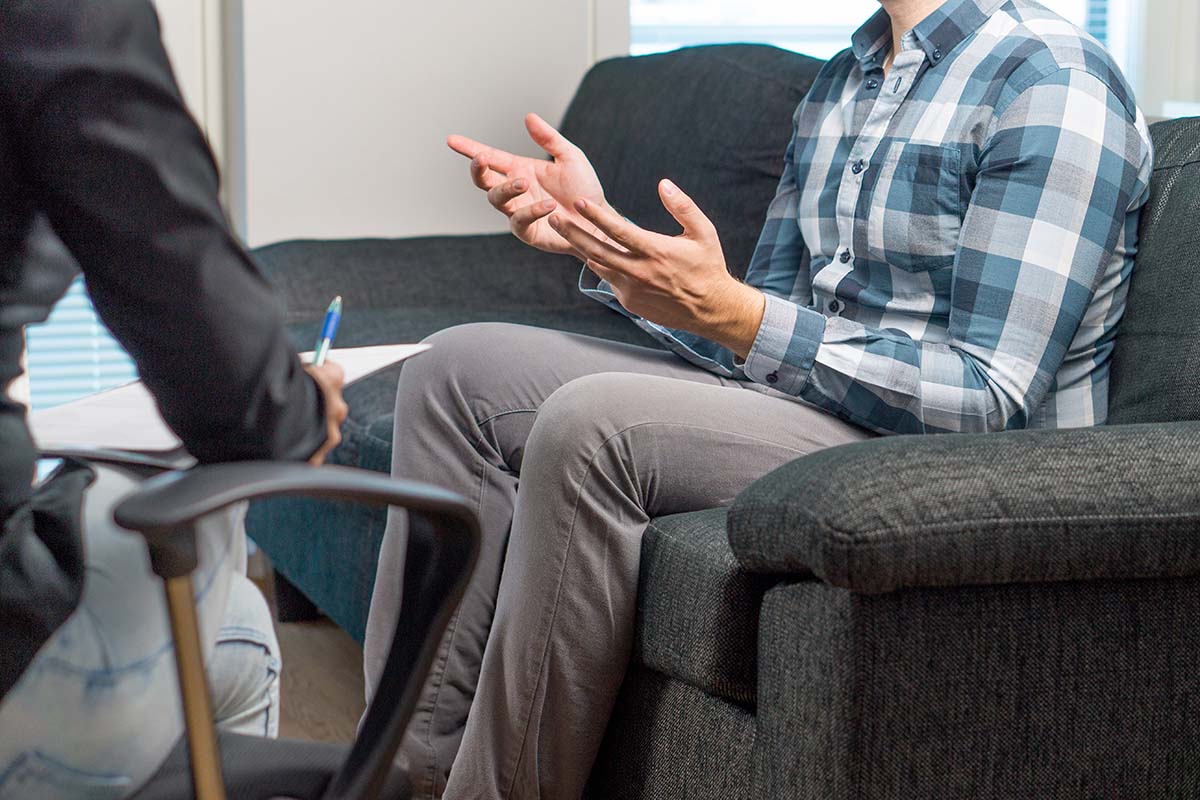When in addiction treatment, you may learn that you’ve been self-medicating undiagnosed mental illness through drug or alcohol abuse. This is common. However, by learning what your root mental issues are, you can learn how to enjoy greater stability in your life without substance use. Quality addiction rehab programs provide mental health treatment for these reasons.
What Is Dependent Personality Disorder?
Dependent personality disorder (DPD) is a common personality disorder, although you may have never heard of it. Both men and women suffer this condition, starting in early adulthood or as adult relationships form. The condition has very specific symptoms that include a strong need to be around others and please them. People with DPD may seem clingy or needy.
They may have trouble making decisions without the guidance of others. They also frequently worry about being abandoned or left alone and go to great lengths to avoid real or imagined abandonment.
Dependent personality disorder is different from having low self-esteem or being introverted. Nor is it a sign of weakness. It’s actually classified as a mental disorder in the Diagnostic and Statistical Manual of Mental Disorders, Fifth Edition (DSM-5).
DPD is one of 10 personality disorders listed in this medical manual. Personality disorders are long-term mental health conditions that cause consistent patterns of thinking, feeling, and behaving in ways that don’t align with cultural expectations and disrupt a person’s life.
Dependent personality disorder is estimated to affect 2% to 7% of the general population in the United States, although the condition is often underdiagnosed. It occurs slightly more often in women than men and usually starts in early adulthood.
Deficits in Decision-Making
Individuals with DPD often struggle to make decisions in their everyday lives. They need constant advice and support from others. These individuals avoid adult responsibilities by acting helpless, weak, dependent, or indecisive. In addition, they may have unhealthy relationships that are often based on the following:
- Acute fear of abandonment
- Fear of being alone
- Patterns of unhealthy relationships
- Needing large amounts of reinforcement
People with DPD are often hypersensitive to criticism. They lack self-confidence and are pessimistic about themselves, believing they are incapable of taking care of their own needs. They avoid having difficult conversations due to a fear of losing other people’s approval. A fear of being alone pushes many people who are struggling with DPD to stay in abusive, negative, unhealthy relationships. They watch out for the other person’s interests before their own to keep the relationship intact.
Dependent Personality Disorder Treatment and Causes
Medical professionals don’t know the causes of DPD. Researchers believe that a mix of factors causes the development of the disorder. These factors include biology, development, temperament, and psychology. Some psychologists think having strict or overprotective guardians in childhood can contribute to the development of dependent personality disorder.
Dependent Personality Disorder and Borderline Personality Disorder
Dependent personality disorder is similar in symptoms to borderline personality disorder. However, for people with borderline personality disorder, a relationship’s end sparks rage and emptiness. On the other hand, a person with a dependent personality disorder is more likely to weather a breakup by finding another immediate relationship, regardless of the quality of the match or the potential for long-term compatibility.
How Do I Know If I Have Dependent Personality Disorder?
Dependent personality disorder treatment involves an initial evaluation by a doctor or therapist. A medical and psychological history provides some help in diagnosing DPD. The first goal is to rule out physical illness as the cause of the symptoms. Once a therapist has ruled out physical problems, he or she will make a diagnosis of the mental condition.
Healing from Dependent Personality Disorder Often Starts in Treatment
We encourage people struggling with a dependent personality disorder to seek treatment for a number of reasons. Having an unhealthy dependence on people stands in the way of people’s happiness and potential. People with a dependent personality disorder may also suffer from depression, anxiety, phobias, and addiction. They’re also at high risk for exploitation, domestic violence, and abuse. The mix of dependent personality disorders with addiction and other mental health disorders can cause people to miss out on the joys in life.
Finding the Right Therapist Makes all the Difference
Dependent personality disorder treatment often includes therapy. Counseling for DPD helps people with the condition understand their nature better. Additionally, it helps them learn how to make better choices for a more independent, fuller life. In fact, the right counseling can also help them prevent problems of depression, anxiety, fear, or addiction.
Addiction and DPD
If you suffer from addiction to alcohol or drugs, one of your underlying issues may be mental illness. Symptoms of DPD may sound familiar to you, making you wonder if you have DPD. Regardless of the type of mental illness you suffer, both that condition and your addiction can end together. You just need the right treatment in a quality rehab program.
Take Your Mental Health into Your Own Hands with DPD treatment in Portland
 Crestview Recovery in the Pacific Northwest provides addiction treatment with therapies that clients need for recovery from addiction and mental illness. This dual diagnosis treatment means you can have the healthier, balanced, and more stable life you want without substance use or the ups and downs of DPD or other conditions. Addiction and mental health programs at Crestview include:
Crestview Recovery in the Pacific Northwest provides addiction treatment with therapies that clients need for recovery from addiction and mental illness. This dual diagnosis treatment means you can have the healthier, balanced, and more stable life you want without substance use or the ups and downs of DPD or other conditions. Addiction and mental health programs at Crestview include:
- Outpatient rehab
- Intensive outpatient
- Partial hospitalization
- Aftercare
Cognitive-behavioral therapy is a good pairing for both individual therapy and a 12-step program. This type of psychotherapy addresses negative thought patterns aimed at a patient’s sense of self. If you or someone you love needs dual diagnosis treatment for lasting recovery from addiction, call Crestview Recovery now at 866.262.0531 The treatment you need is waiting for you.
































